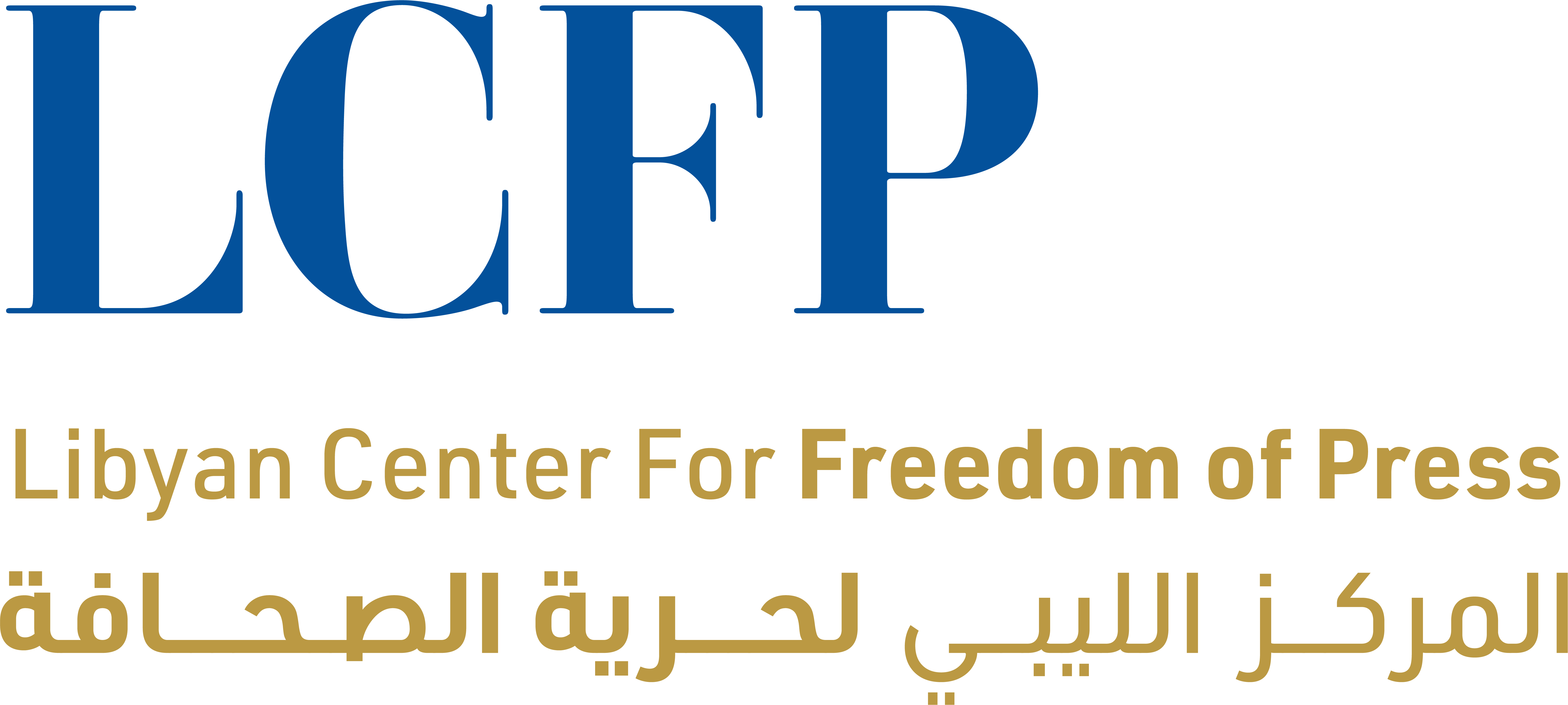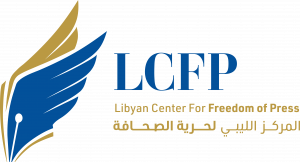Tripoli, Monday, September 4: The Libyan Center for Freedom of Press (LCFP) issued a new research report, the first of its kind in the Libyan context, on “political pluralism in Libyan satellite channels” in preparation for the national elections. The research report is launched in partnership with MENA Media Monitor .
The new research report focuses on monitoring and analyzing the content of 9 of the most followed and influential Libyan satellite channels that address political issues and public affairs in their programs. We have monitored 450 hours of live television broadcast. Our observation was focusing on 6 prominent political figures.
The research report concluded that the concepts of professional balance and political pluralism are lacking in most of the targeted media outlets in their coverage of the complex political events in the country. The majority of these channels lean towards the political propaganda of certain people and their political orientations.
The February and Al-Masar TV channels took over 41% of the total media coverage and appearence of political figures in the Libyan media scene. The Prime Minister Abdul Hamid Dbeibeh, General Khalifa Haftar, leader of the House of Representatives Aguila Saleh, former President of the High Council of State Khaled Al-Mishri, and President of the National Oil Company Farhat bin Qadara appear the most in the content that was monitored in the Project during the monitoring period.
The results of the monitoring operations show that the Prime Minister of the Government of National Unity received a coverage with a positive trend of 35%. Then, the commander of the armed forces in the east of Libya, Khalifa Haftar, received a positive coverage trend of 28%. After that, comes the former head of the parallel Libyan government, Fathi Bashagha, with a rate of 26%. As for negative coverage, we find General Khalifa Haftar at a rate of 53%, followed by Fathi Bashagha at a rate of 44%, and then the president of the House of Representatives, Aguila Saleh, at a rate of 43%.
Despite the wide presence of the Prime Minister in media, it was negative. For instance, he received 25% of the media coverage of Al-Masar TV channel, yet, with a negative trend of 82%. The former Presidents of the House of Representatives and the High Council of State, on the other hand, have been covered at a rate of 17% each, with a negative trend of 55% for Aguila Saleh, and 26% for Khaled Al-Mashri.
The Prime Minister of the Government of National Unity, Abdul Hamid Dbeibeh, topped the list of the highest appearing figures in Libyan media by more than 24% of the monitored content. In February channel, which he is believed to own, he receives a 44% coverage with a positive and neutral trend of 91%. On the other hand, the appearence of General Khalifa Haftar and the president of the House of Representatives, Aguila Saleh, is around 21% each with a negative trend of more than 90%. This means that February channel has shifted from media service to political propaganda in favor of one political figure.
General Khalifa Haftar obtained 25% of the total coverage of the Libya Al-Hadath TV channel, which is owned and managed by one of his sons. This coverage was generally positive by 89%. The General is also the first politician covered by Libya Al-Ahrar TV channel by 23%. However, the trend is negative with 59%. The results of the monitoring operations show that the coverage of the Libya Al-Hadath channel is blatantly biased towards Haftar compared to the rest of the political figures.
The Chairman of the House of Representatives, Aguila Saleh, also dominates the coverage of Libya Al-Mustaqbal TV channel by 26%. The channel is affiliated with the Presidency of the House of Representatives. This coverage was positive by 71%, while Prime Minister Abdul Hamid Dbeibeh appeared in 13% of the covered materials, but with a negative trend of 80%.
However, what is interesting is the diversity in the coverage of a large number of political figures in Al-Wasat TV channel. Despite the fact that the Prime Minister leads the coverage by 20%, Al-Wasat channel does not show any blatant bias towards any of the political actors in Libya. The coverage trend is more neutral or negative than it is positive.
It is evident that Libya’s Grand Mufti, Sheikh Sadiq al-Ghariani, obtains an 89% positive trend in Al-Al-Tanasuh TV channel, since it is affiliated with Dar al-Ifta. General Khalifa Haftar appears in the channel with an absolute negative trend of 76%. Aguila Saleh and Abdul Hamid Dbeibeh obtained an equal coverage of 14% in Al-Al-Tanasuh TV channel. However, that coverage is negative for Aguila Saleh and ranges between positive to neutral for Abdul Hamid Dbeibeh.
The research report shows the absence of the concept of political pluralism in public media, namely Al-Rasmia and Al-WatanyaTV channels. Their role is limited to being the first communication institutions of the Presidential Council and Government of National Unity. In addition, 97% of the political figures monitored in satellite channels are over the age of fifty years. Moreover, while men accounted for 94% of the coverage in the Libyan monitored channels, women are absent from the political media scene.
Due to the important and sensitive role played by Libyan media, and to the influence of the intervening and controlling political figures, LCFP continues to work in conducting more media research and studies to understand the Libyan media problems and challenges. Through this, LCFP attempts to implement the concept of self-regulation, and to develop a tool that measures the professional balance in media coverage in order to ensure fair representation and equal opportunities among candidates in the stalled upcoming national elections.
Many executive institutions in the media sector have been established. They start without a clear strategic vision for their mission and tasks, especially under the legislative gap, the absence of media laws and the lack of the right to access information. On the other hand, satellite channels and digital platforms play an important, but negative, role in the Libyan crisis.
The research report shows the urgent need to install a pluralistic media scene that ensures fair representation of all political parties. That is a necessity in order to organize free national elections that guarantee the right of both voters and candidates. The report focuses on knowing the extent to which Libyan politicians appear in the media scene, and does not aim at defaming or undermining the efforts of newsrooms.
Download the report via the following link :


